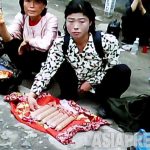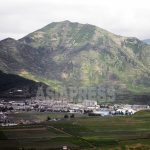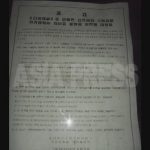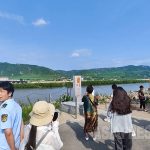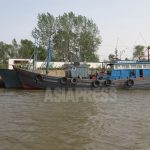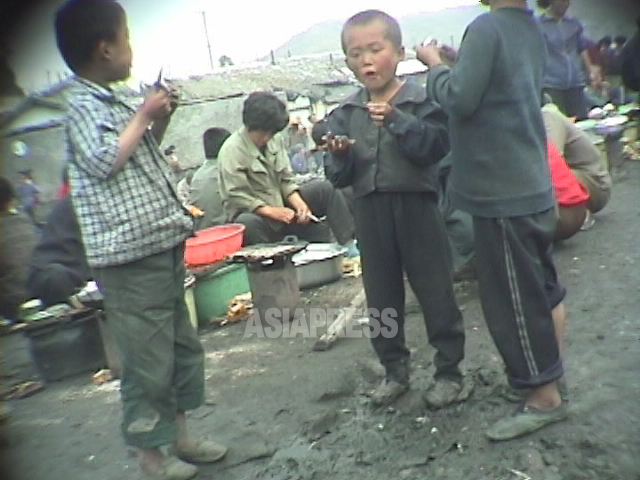
■ Starving to death in front of food stores
The economist Amartya Sen, an Indian national who won the Nobel Prize in Economics in 1998 for his work on famine, has said that during the Bengal mass famine in the 1940s there were people who starved to death in front of food stores stocked with large amounts of food. He went on to argue that there was no relationship between food supplies and starvation, and that famine is a state of “deprivation” caused by people’s insufficient capacities and qualifications to obtain enough food.
In the late 1990s, as I continued to report on the mass famine that overtook North Korea, my eyes were opened when I read Sen’s book “Poverty and Famines.” I had came across video secretly captured inside North Korea showing emaciated children picking up and eating food in front of black-market rice stalls and open-air restaurants.
In around March or April of 1998, when I visited North Hamgyung Province for around three weeks, I witnessed something similar with my own eyes. At the time, I was able to frequently visit local markets, and nearby the hundreds of women selling grains, rice cakes, bread, and soba noodles, were gathered beggar children. There was food right in front of them; however, these homeless beggar children just couldn’t access it.
Twenty-five years have passed since that time, but there are now reports of people again dying of starvation in the DPRK. Who are these starving people, and why are they facing such circumstances?
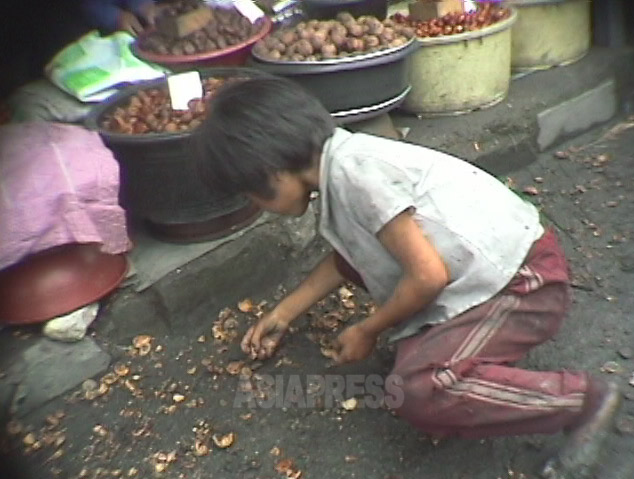
■ COVID-19 has made North Korea even more isolated than before
In January of 2020, when the COVID-19 pandemic erupted in China, the Kim Jong-un regime completely and suddenly shut down the country’s frontiers, stopping people and goods from crossing the borders. Even international mail services were completely halted out of fear of the virus particles infecting people, and this suspension in mail services continues to this day as I write this column, making it impossible for anyone to send even one letter over the border into or out of North Korea.
These days, there is almost nobody in North Korea who goes to China, and there are hardly any defectors anymore. Even journalists for the Choson Sinbo, which is operated by the General Association of Korean Residents in Japan (Chongryon), all left the country in 2020; even today, their replacements are not allowed to enter the DPRK. The pandemic has gradually made North Korea even more isolated than it was before.
For the past 20 years, I have been reporting on conditions inside the DPRK with the help of North Korean residents. ASIAPRESS uses Chinese phones smuggled into North Korea to maintain communication with its reporting partners. Presently, we have six reporting partners we stay in touch with. Below, you will find detailed reports about conditions in North Korea obtained from these men and women.
In the fall of 2020, when the pandemic began, there were urban dwellers all over North Korea who picked up ears of rice from farming areas where the harvest had finished or who went to farmhouses to beg for food. In the summer of 2021, reporting partners began to witness people dying of malnutrition or disease. There was even a reporting partner who went to a relative’s house only to find them dead. North Korea’s vulnerable class – from elderly people to families without a father or husband – were the first to fall into economic distress. How, then, did the deprivation that Sen talks about occur in North Korea?
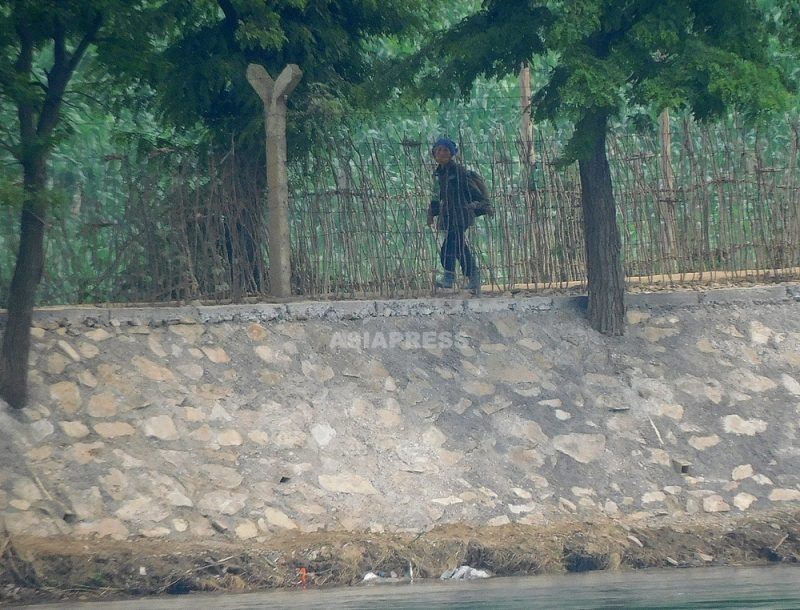
■ The government deprives its people of the right and opportunity to earn money
The Kim Jong-un regime slapped strong restrictions on movement inside the country under the pretext of stopping the spread of COVID-19. At the same time, the regime began intense crackdowns on private economic activities to “eliminate non-socialist behavior.” The government even banned the operation of privately-run restaurants. It also became impossible for business owners to hire people to conduct small-scale economic activities, such as the sale of bread, rice cakes and other food, clothes making, and the transport of goods with handcarts.
Adult males were forced to go to work at their assigned workplaces, making it difficult for them to do market-based work or odd jobs. This led to a drastic drop in the amount of cash urban dwellers could earn. After the almost complete breakdown of the public distribution system in the 1990s, most North Koreans earned cash income through private economic activities, using the money they earned to obtain food from local markets. After the outbreak of the pandemic, however, the government made this impossible.
A reporting partner in North Hamgyung Province told ASIAPRESS:
“When people ran out of money, they would borrow cash and rice from relatives or friends. Then they would sell off their household items. I witnessed debt collectors swarming, taking away cooking pots and pans from other people’s houses. Left with nothing, people would either beg or commit crimes to survive, while women would turn to prostitution. The last thing people would do is sell their houses.”
Conditions in North Korea worsened even more during the spring of this year. All six ASIAPRESS reporting partners reported that there had been people starving to death in the areas they lived from April to May, and that elderly people and children were begging at markets or on the streets.
■ News agencies should report more on North Korea’s dire conditions
On July 14, five UN agencies, including the World Food Programme, released a report stating that 44.5% of North Korea’s population, or 11.8 million people, had suffered from malnutrition from 2020 to 2022. There is no doubt that North Korea is facing a humanitarian crisis. Journalists need to be reporting more on the poverty North Koreans are suffering from, but many are failing to shed light on conditions there.
In his book, Sen asserts that “the continued occurrence of severe famines is closely related to the lack of democratic politics from an institutional and practical perspective.”
(This is an edited version of a column published in the Tokyo Shimbun on August 23, 2023)
- <Breaking News>Kim Jong-un regime restarts public executions…Nine people shot to death in Hyesan City on August 30 according to witness
- <Photo Report>The North Korea-China Border (1) In August, Tumen and the midstream of the Tumen River was quiet
- <Inside N. Korea>New proclamation calls for intensified control over the economy…Intense crackdowns on circulation of goods and use of foreign currency (1) The authorities confiscate Chinese yuan and US dollars
- <Inside N. Korea> “People are stealing unripe corn from the fields” Farms already see a rash of thefts of grains…Security guards given live rounds and even soldiers are deployed
- <Inside N. Korea>Even military face increasing malnutrition; A soldier said “We don’t get even half a bowl of food…half of my comrades are in a weakened state”
